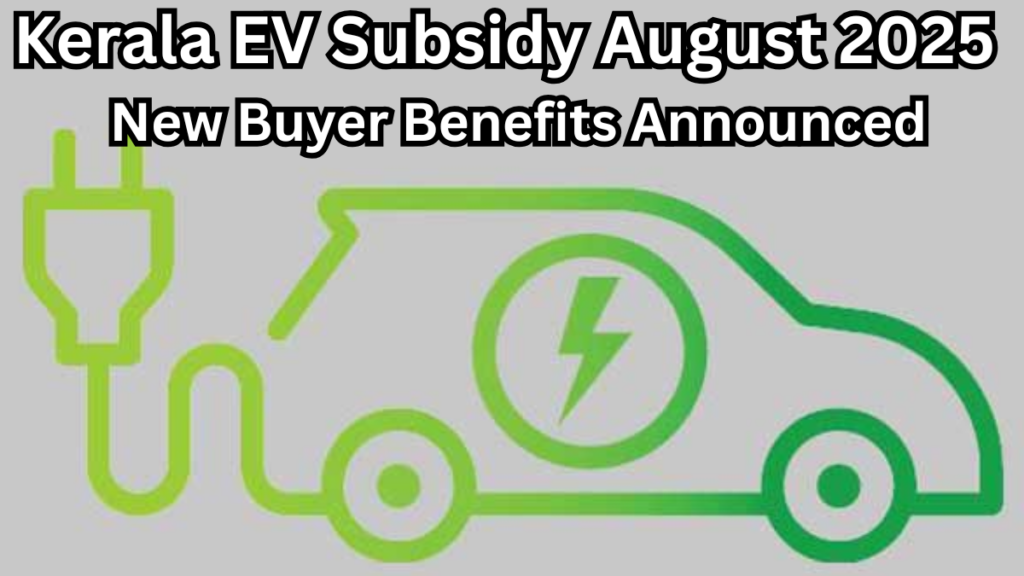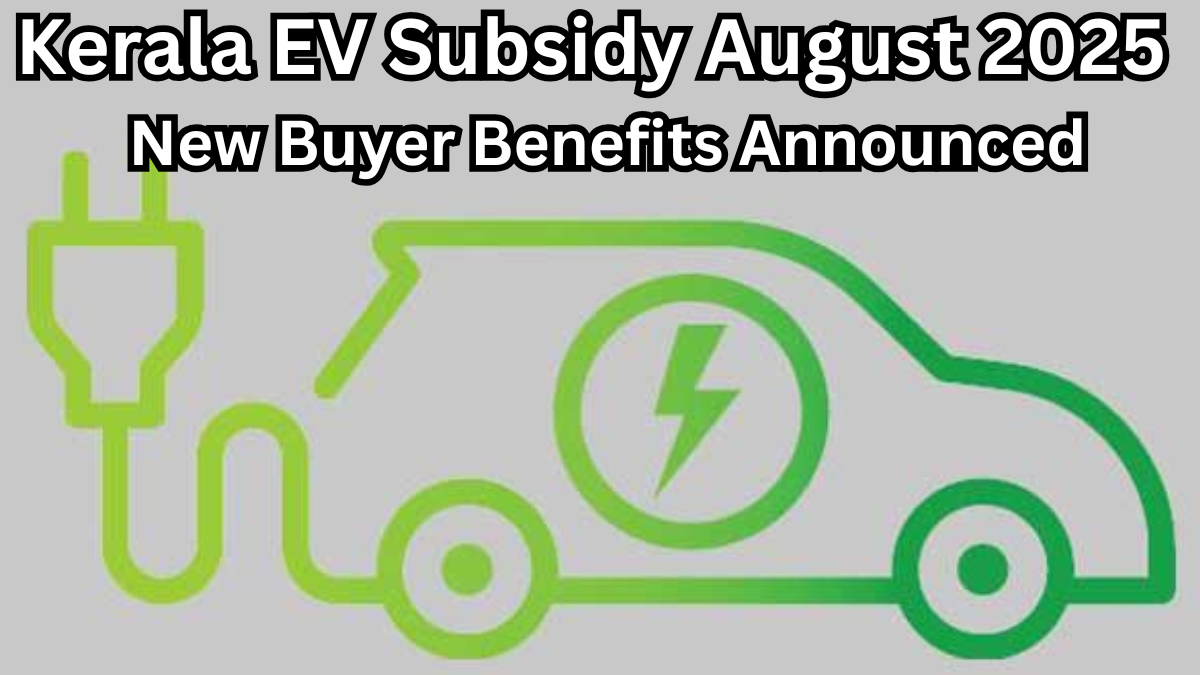If you’re considering switching to an electric vehicle in Kerala, there’s some exciting news. Starting August 2025, the Kerala government is rolling out fresh incentives under its updated EV subsidy policy. Whether you’re an individual buyer or a fleet owner, these changes aim to make electric mobility more affordable and accessible.
Let’s break down what the Kerala EV subsidy update 2025 means for you.

What’s New in the Kerala EV Subsidy Policy – August 2025
The Kerala government has tweaked its existing EV subsidy program to expand reach and encourage more residents to adopt electric vehicles.
Key Highlights
-
Increased subsidy limits for electric two-wheelers, three-wheelers, and four-wheelers
-
Additional financial benefits for early adopters
-
Special grants for commercial EV fleet owners and delivery operators
-
Incentives for retrofitting existing fuel vehicles with electric kits
Who Can Benefit?
The electric vehicle grant Kerala program now covers:
| Category | Eligibility Criteria | Benefit Cap (₹) |
|---|---|---|
| Private 2-Wheeler Buyers | First 10,000 eligible applicants | Up to ₹15,000 |
| Auto Rickshaw Owners | Registered auto rickshaw drivers | Up to ₹30,000 |
| Electric Car Owners | For personal or fleet purposes | Up to ₹50,000 |
| Fleet & Taxi Operators | Minimum of 5 EVs in the fleet | ₹25,000 per vehicle |
| Retrofitting Conversions | Petrol/Diesel vehicles converted to EVs | ₹20,000 |
Special Benefits for Women & Students
Under the new scheme, women buyers and students receive additional perks:
-
10% extra subsidy on electric scooters
-
Priority disbursement and fast-track approval
-
Special financing options via Kerala State Financial Enterprises (KSFE)
This makes the Kerala EV subsidy update 2025 more inclusive and socially impactful.
How to Apply for the Electric Vehicle Grant Kerala
The application process is now entirely digital.
Step-by-step
-
Visit the official website of the Kerala Transport Department
-
Navigate to the EV Subsidy Portal – 2025
-
Register using your Aadhaar-linked mobile number
-
Upload your EV purchase invoice and vehicle registration documents
-
Submit bank details for direct subsidy credit
Note: Subsidies are released on a first-come, first-served basis, so it pays to be early.
Timeline & Rollout Plan
| Phase | Timeline | Focus Area |
|---|---|---|
| Phase 1 | Aug–Oct 2025 | Two-wheelers and rickshaws |
| Phase 2 | Nov 2025–Jan 2026 | Private & commercial EVs |
| Phase 3 | Feb–Mar 2026 | Retrofitting projects |
This structured rollout ensures that demand is met efficiently while giving the government time to manage infrastructure upgrades.
Why This Matters for Kerala’s Green Future
The revised electric vehicle grant Kerala initiative is a key part of the state’s plan to reduce vehicular emissions by 40% by 2030. By encouraging EV adoption at a grassroots level, Kerala is taking proactive steps toward climate-conscious transportation.
FAQs
1. What is the last date to apply for the Kerala EV subsidy in 2025?
The initial window opens in August 2025 and will run until March 2026, or until funds are exhausted.
2. Can I apply for the subsidy if I bought my EV in July 2025?
No. Only vehicles purchased and registered after August 1, 2025, are eligible under the new Kerala EV subsidy update 2025.
3. Are commercial fleet operators eligible for bulk subsidies?
Yes. Fleet owners with a minimum of 5 EVs can apply for ₹25,000 per vehicle, subject to documentation and verification.
4. How long does it take to receive the subsidy amount?
Once approved, the subsidy is usually credited within 30 working days to the applicant’s bank account.
Final Thoughts
The Kerala EV subsidy update 2025 brings a much-needed boost to the state’s electric vehicle ecosystem. Whether you’re a college student dreaming of your first scooter or a logistics startup looking to electrify your fleet, this initiative offers tangible benefits for all.
If you’re ready to make the switch, now’s the best time to take the leap toward a greener, smarter, and more cost-effective mode of transport.
Click here to learn more
